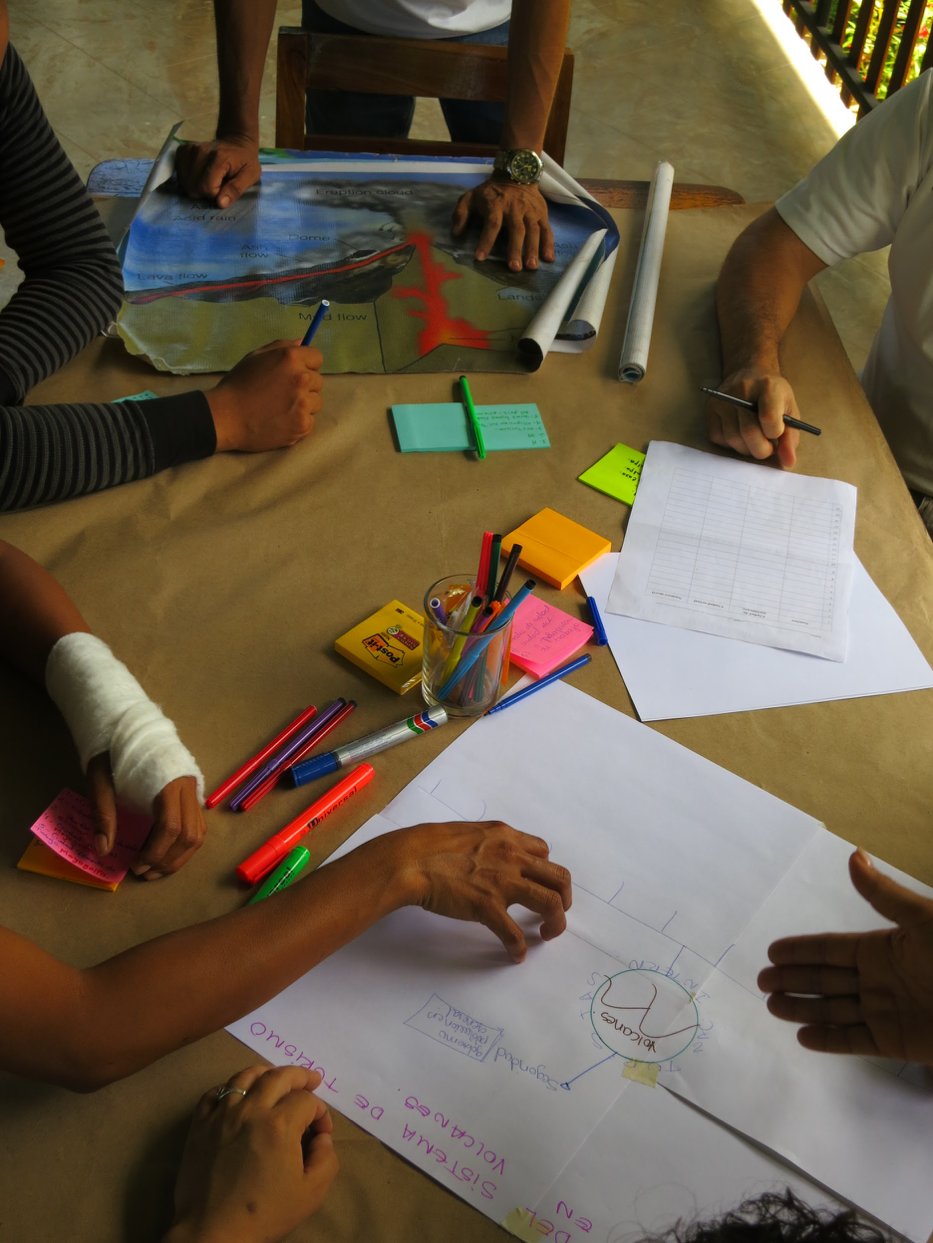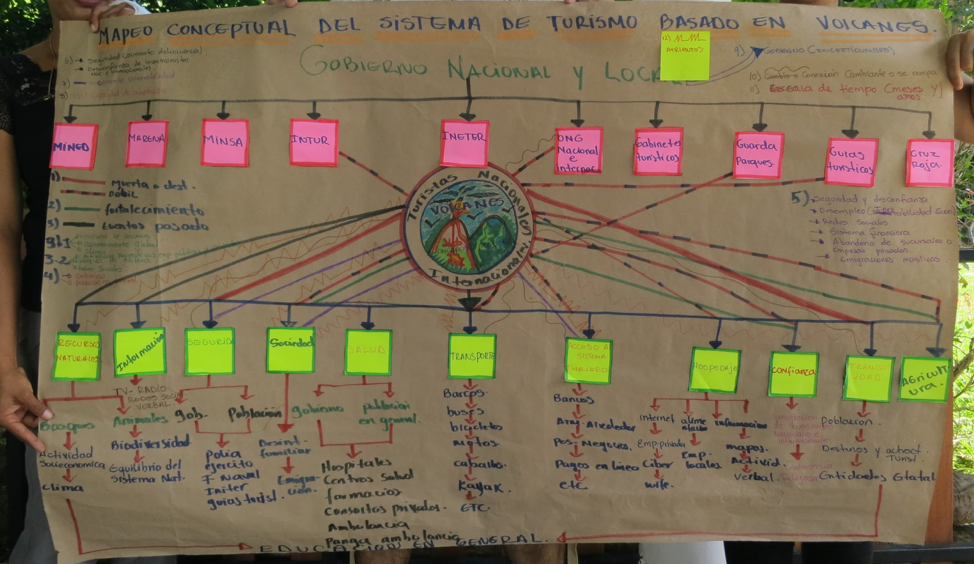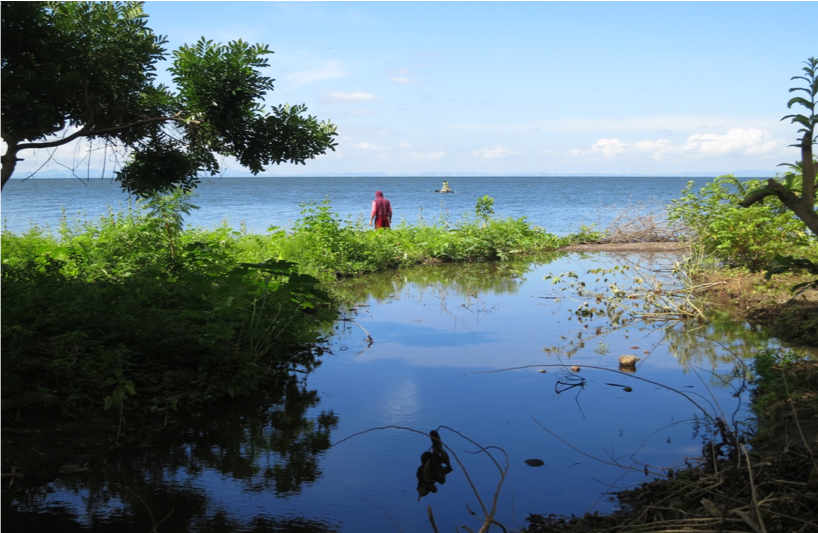Chelsea Leven 2018 Field Report
2018 CLAG Field Study Award Report:
Chelsea L. Leven, Masters Student, Department of Society and Conservation, The University of Montana.
Project: Understanding Volcano-Based Tourism From a Systems Perspective on Ometepe Island, Nicaragua.
On April 19, 2018 unrest erupted across Nicaragua when police killed student protestors in Managua. Since then, clashes between Nicaragua’s leadership and governmental opposition have resulted in hundreds of deaths, negative impacts upon public and private services, the unhinging of the economy, and devastation of the tourism industry.

Participants discuss and draft ways in which they can visually represent the significant components and drivers comprising volcano-based tourism on Ometepe Island, Nicaragua.
My originally proposed research sought to better understand the dynamics of the social-ecological system on the volcanic island of Ometepe. My research objective derived from the mix of significant natural hazards combined with tourism growth that directly related to one source of hazards—volcanos. However, the unanticipated events at the national level helped to focus my research specifically upon describing the current system state with the loss of volcano-based tourism. I have chosen to conduct these activities in three communities, based upon the varied ways in which tourism functions in these communities combined with the diversity of volcanic hazards.
Local residents have adjusted their lives significantly in response to the loss of volcano-based tourism. While hardship has resulted from the national crisis, residents are eager to talk about the effects of lost tourism business. My preliminarily research indicates that residents are finding opportunities, such as improving their engagement with subsistence forms of living, strengthening social connections, and creatively considering new business developments.
Funding from CLAG supported this study by assisting with transportation expenses, and the costs of supplies, rental spaces, and catering necessary for conducting the participatory research activities and field work. My data collection consists of a series of visual, conceptual mapping exercises, in which small teams of participants identify components such as actors and livelihoods, and describe the interactions between them.

One group of participants from Moyogalpa, Nicaragua, holds up their conceptual map of volcano-based tourism on Ometepe Island.
The second large-group research activity is now complete. Participants brought their varied life experiences to the table, sharing and engaging in a manner that has produced animated discussion and rich conceptual maps of their system. Participants have expressed appreciation for the opportunity to engage with others from their community. Early participant feedback indicates that this study is fostering local collaboration and communication.
This work is a collaboration with the director of the local chapter of Fauna & Flora International (FFI). On Ometepe, FFI focuses upon species protection and agricultural practices. FFI hopes that the study will help illuminate how tourism can better support their goals. Additionally, I am working with the nonprofit organization Guias Unidos dedicated to international exchange and collaboration with a focus on environmental awareness and personal opportunities. I also work with government partners including the Instituto Nicaragüense de Estudios Territoriales (INETER), the local town hall, and the tourism board.
The national crisis in Nicaragua offers a window of opportunity to examine the tourism system and disturbances on the island of Ometepe. I hope that improved systems understanding of tourism can help to (1) promote more effective use of tourism as a tool to improve environmental and human well-being, and (2) improve understanding of a social-ecological system undergoing a crisis, so that future interventions can be more deliberate, sustainable, and successful in the long term. It is with huge gratitude to CLAG that I write this field report, for the financial support that has helped enable me to conduct this research.
See the full report for more details.

Following a recent stories of storms, the lake level has risen significantly, causing flooding (water in the foreground).


















